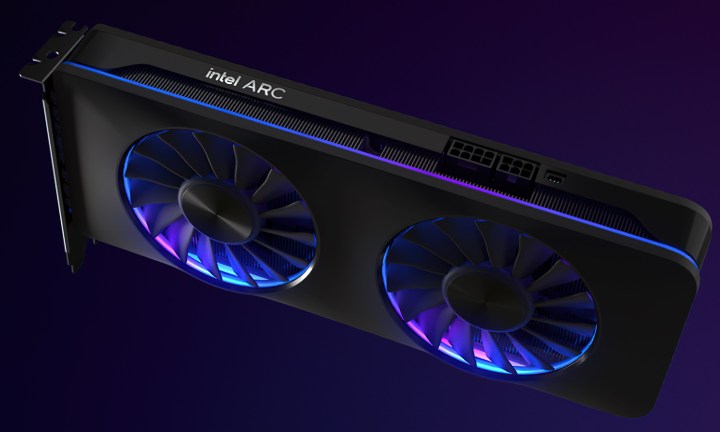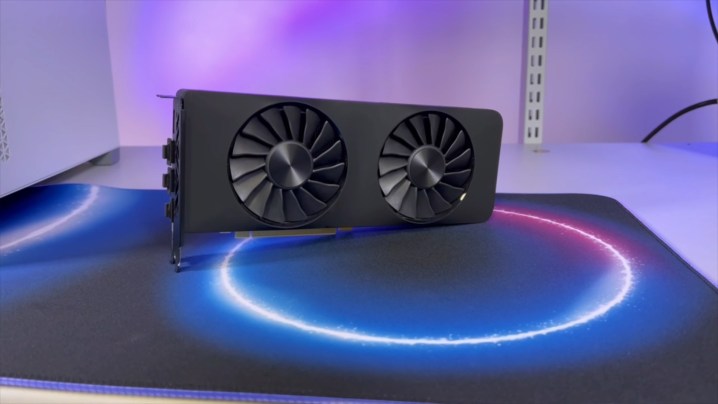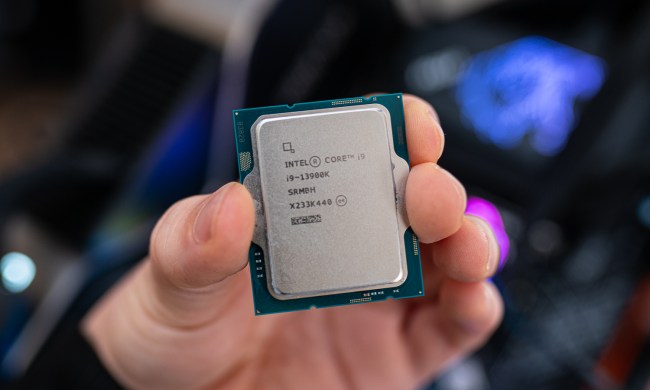A rumor is circulating that Intel’s Arc graphics cards are being canceled, and unlike previous rumors we’ve heard on the matter, this one seems to hold some weight. The first discrete desktop GPUs from Intel have seen ups and downs since being announced around a year ago, but this is the first word we’ve gotten that the company may abandon the project.
Headlines and YouTube thumbnails don’t tell the full story here, though, and they’re primed to spread misinformation considering that Intel’s first-gen Arc Alchemist GPUs aren’t available in the U.S. yet and should launch soon. It’s impossible to say if Arc will eventually bite the dust, but there’s a compelling reason it shouldn’t.

If you’re unaware, the rumor concerning Arc’s cancellation centers around a video from YouTube channel Moore’s Law is Dead (MILD). MILD is known for rumor and leak videos around CPUs and GPUs, several of which we’ve reported on in the past. This video shares several quotes that the YouTuber says were gathered from a range of sources, including one source that said: “The decision’s been made at the top to end discrete.”
To be clear, the video talks specifically about Arc as a segment at Intel, not the upcoming Arc Alchemist GPUs. The video claims that Intel plans to cancel the project — which is formally known as AXG or Accelerated Computing Systems and Graphics — beyond the launch of the second generation Battlemage GPUs. The rumor also specifically refers to discrete GPUs; Intel won’t stop making integrated GPUs any time soon.
Raja Koduri, Intel’s executive vice president of the AXG group, responded to the rumor with a tweet showing a road map Intel shared earlier this year.
Attached is what we said in Feb'22 and are continuing to execute this strategy. pic.twitter.com/rfIRjq4p5G
— Raja Koduri (Bali Makaradhwaja) (@RajaXg) September 12, 2022
Koduri also shared that the Intel team is shrugging off these rumors, saying “They don’t help the team working hard to bring these to market, they don’t help the PC graphics community…one must wonder, who do they help?”
This isn’t the first time Intel executives have taken to Twitter to dispel rumors circulated by the YouTube channel. In July, Intel’s graphics marketing lead Ryan Shrout took to Twitter to clarify that an Intel Arc A780 never existed, which was a rumor that MILD started. The YouTuber stuck to their guns despite Shrout shooting the rumor down.
Despite some rumors to the contrary, there is no Intel Arc A780 and there was never planned to be an A780. Let’s just settle that debate. 🤣
— Ryan Shrout (@ryanshrout) July 16, 2022
Problems are expected, solutions are rare
It’s no secret that Intel has had several issues with Arc up to this point, but it’s still much too soon to see the multi-year AXG roadmap abandoned. Many of the issues present now, like those concerning 40 issues found in Intel’s drivers, won’t persist throughout generations. The problems we’re seeing with Arc Alchemist now are the worst problems Intel will face, as future generations can learn from previous ones to deliver a better product.
The last thing you want to be is shortsighted when investing so much in a new group. Analyst Jon Peddie penned an editorial in late July estimating that Intel had invested around $3.5 billion in the AXG group — more than it had ever invested in another business. That estimate came around the time that Intel CEO Pat Gelsinger axed six businesses, saving Intel around $1.5 billion in costs. Gelsinger shared a few days ago that the company plans to exit other businesses in the future, as well.

Although the first generation of Arc graphics cards have seen problems, Intel is addressing them at breakneck pace. Many driver issues have been fixed, and in response to fans calling for more transparency, Intel has created a dedicated Intel Arc page that shares updates on features and more details about the GPUs.
If cancellation is on the minds of Intel executives, we don’t think it’s coming soon. And given the current state of the graphics card market, it shouldn’t come at all.
Why Intel shouldn’t cancel Arc
Although some analysts have called for Intel to dissolve the AXG group, Arc still represents a third player challenging the AMD/Nvidia duopoly, and it delivers in an area that neither AMD nor Nvidia have been able to fully capture. From what we know right now, the Intel Arc A750 should beat the RTX 3060 by about 13%, which is a decent boost if the card has the right price.

Assuming it’s priced right, that’s a compelling offer for gamers. Even now that GPU prices are back to normal, the RTX 3060 still sells for around $400. If Intel can deliver around $330 as the list price of the RTX 3060, you have a very valuable mainstream GPU that Nvidia and AMD haven’t hit quite yet.
And a lot of that doesn’t come down to performance, but features. Arc’s Xe Super Sampling (XeSS) feature is competitive with Nvidia’s Deep Learning Super Sampling (DLSS) based on what Intel has shared, and the ray tracing capabilities of Arc Alchemist, at least from an architectural standpoint, trump what AMD is currently offering (that may change with next-gen RX 7000 GPUs, though, for what it’s worth).
With that combination of features and the right price, Intel is set up for success. Even with GPU prices down, the options between $200 and $400 are pitiful. The RX 6500 XT is one of the worst GPUs in recent memory, and despite Nvidia listing cards in this price bracket, real models rarely sell for what Nvidia advertises.
If you look at Steam hardware stats, there’s a reason that Nvidia’s GTX cards still top the charts, as they offer a value that you just can’t get with current-gen offerings from AMD. As Nvidia’s CEO said in a recent earnings call, the average price of GPUs is going up, and that’s evidenced by cards like the 12GB RTX 3080. Even without scalpers in the mix, Intel has an opportunity to deliver sub-$400 GPUs that are competitive on performance and features for a segment of the market that has largely frozen.
It’s easy to assume Intel quickly spun up the AXG group to capitalize on the colossal GPU prices toward the end of 2020, but that’s not what happened. This has been a focus for Intel for years. We’re on the edge of next-gen GPUs from AMD and Nvidia, and given what we’ve seen over the past few generations, a third player to shake up that dynamic and force prices down is exactly what we need.




